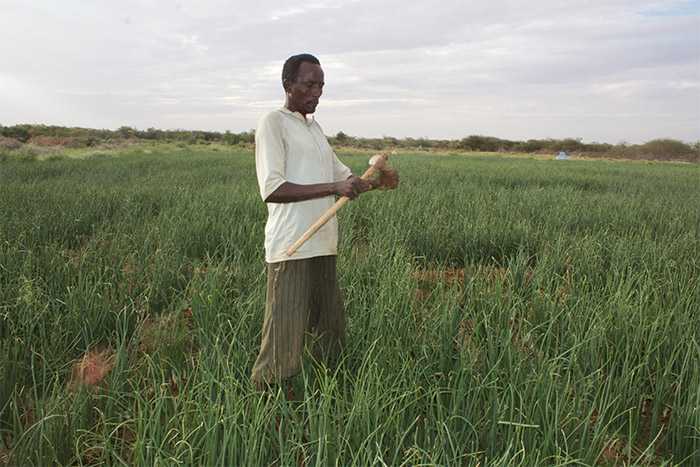In Barabay village in Somalia’s Dollow District, the Danish Refugee Council (DRC) supports landless community members to improve their agricultural practices and earn better incomes through the sharecropping model. The intervention has turned Ali Ibrahim Issack’s life around. Ali Ibrahim Issack is a 47-year-old resident of Barabaray village – Dollow district- Somalia. He lives with his wife and eight children aged between two and 14 years. He is among the first farmers who received training on good agricultural practice as well as farming inputs from the Danish Refugee Council (DRC). Ali’s family became a beneficiary to our resilience program because he had poor livelihood assets and had a big family to feed.“I grow tomatoes, maize, onion, sorghum, beans, cowpeas and grass in rotation in the ten-hectare farm as a sharecropper,” says Ali who is an agro-pastoralist. Ali and his fellow farmers do not own the land. They are tenant farmers who rent the land and give the landowner part of their farm produce as rent. The DRC project supports poor landless community members through the sharecropping model.
Ali irrigates his farm from the river and makes about US$ 2,800 annually from rotating his crops. He saves some of the money for his family’s use, re-invests in the farm and invests some on his livestock. When our team met Ali, he had been farming for twenty years, amid numerous obstacles. The maize did not grow well, the tomatoes attracted worms and the onions didn’t produce promising yields. Our team found out that Ali was facing these obstacles because of poor agricultural practices, such as poor spacing and improper land preparation. The team trained Ali and other Barabaray community members to improve their agricultural practices. Because they are agro-pastoralists who have experience farming, they easily added the newly introduced methods of farming to their traditional knowledge and practices. For example, they immediately adopted the manure application, a product that is easily available in their environment. In Barabay, displaced communities, who have participated in sharecropping, have secured enough earning and some have even bought farms together and are now engaged in resilient farming.
Ali has already seen the benefit. “Before the training, I spent close to US$ 300 on DAP and UREA (chemical fertilizers). It’s expensive and not easily accessible. Now, I put animal manure in sacks; carry it on my donkey carts from nearby homesteads at no cost. I apply it between the ridges where we grow onions. Unlike tomatoes, onions attract fewer insects so it’s best if we use this organic manure,” he explains. Ali’s last harvest gained him US$ 2,800. He invested US$ 400 in his 2 Ha onion farm and saved US$ 2,400 for other family expenses, such as buying other types of food, health, and education. He used part of the income to increase his livestock herd. “I do not worry about providing for my family anymore, I plan to increase production and continue to raise the living standards of my children.”Crop diversification and good farming mechanisms have helped Ali increase the probability of getting a good market and saving his livelihoods assets. We continue to help the communities become self-reliant in Somalia.
Fatuma Abdisalam is the Communications Specialist, DRC, Somalia Program.

